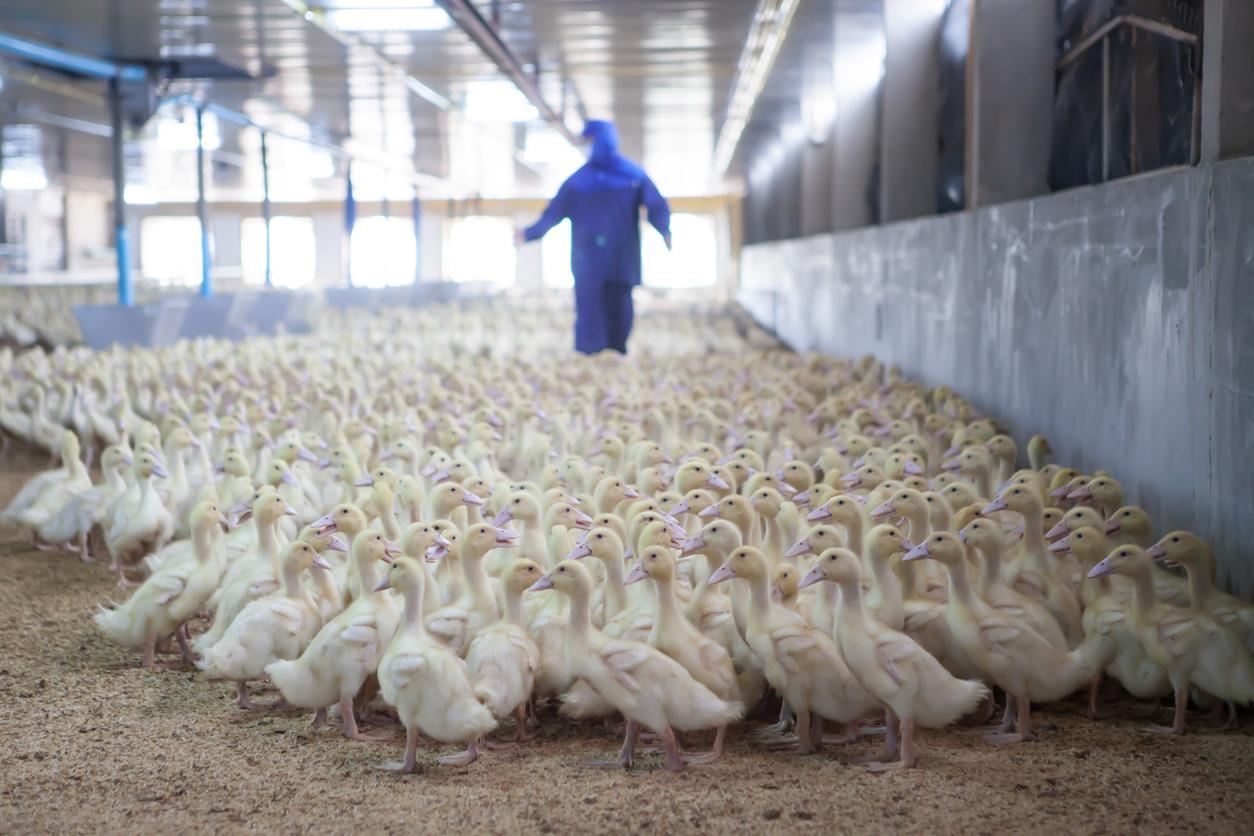Animal health officials in France today reported an avian flu outbreak at a duck farm on which the birds had been vaccinated in November 2023 as part of the country's initial rollout of the poultry vaccine, which marked the first in Europe.
Duck at farm immunized in November
The government of Vendee department, located on France's western coast, detailed the development in a statement translated and posted by Avian Flu Diary, an infectious disease news blog. Officials said the results were confirmed on January 2 and that the 8,700 ducks on the farm have been depopulated.
Officials acknowledged that vaccination doesn't eliminate the risk in poultry but can reduce virus shedding and circulation.
In early December, France's agriculture ministry ordered that farmed ducks in high-risk areas receive a third vaccine dose because of new scientific evidence. It's not clear, however, if the ducks on the outbreak farm had received the third dose.
A few countries, such as China, routinely vaccinate poultry against avian flu viruses. However, ongoing concerns that vaccination could mask ongoing circulation have made other countries hesitant to rollout broader vaccination, with some—such as the United States—barring the import of poultry from countries that immunize poultry against avian flu.
Commercial poultry in multiple world regions have been hit hard by the newer 2.3.4.4b clade of the H5N1 avian flu strain, and at the end of December, the World Organization for Animal Health (WOAH) weighed in with a policy brief, saying current control measures might be enough to control the spread of the virus.
The WOAH has endorsed use of the vaccines, based on international standards. It has said that it's possible to maintain international trade while proving that countries can maintain surveillance in and around immunized flocks.
European countries report more outbreaks
Several countries in Europe reported more H5 outbreaks in wild birds or in poultry, according to the latest notifications from the WOAH. Kazakhstan reported H5 in wild birds, with Ukraine detecting H5N1, also in wild birds.
Moldova reported several more H5N1 outbreaks, spanning backyard poultry, wild birds, and village birds. And Germany reported H5N1 in wild birds at a zoo in the city of Cottbus, located in Brandenburg state in the northeast.
South Korea reports more H5N6 outbreaks
Elsewhere, South Korea reported 10 more highly pathogenic H5N6 outbreaks on poultry farms, according to a notification from WOAH. The outbreaks come in the wake of eight outbreaks in poultry, plus a few in wild birds, involving the strain in December.
Japan has also recently reported H5N6 in wild birds, marking its first detection since 2018.
H5N6 is known to circulating in poultry in some Asian countries, but so far, China and Laos are the only to report spillovers to humans who have contact with birds or their environments. Human H5N6 infections, mostly reported in China, are often severe or fatal.

















